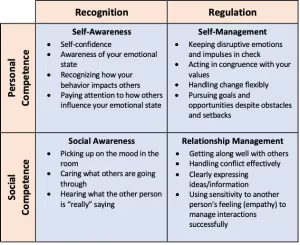Did you know the way you experience stress is not determined by the stress-causing stimuli but by how you respond to it?
How you think and process stressful events happening in the workplace causes physical, psychological, spiritual, and mental changes that affect your entire being.
Not only that, the length of time you spend replaying the event or how you are to handle it adds to the stressful experience.
For instance, people who experience more stress have the following thought processes or behavior:
- They view stress as always harmful
- They are always concerned about how much stress they are under
- They constantly look for ways to reduce stress to reduce the adverse effects
- They persistently engage in healthy or unhealthy habits to get stress under control
- They give those around them a hard time when they're stressed
Let's be honest, most of us go through the above responses more often than not. Work demands are ever-increasing, and the duties at home also await us at the end of the day.
Today, Mental Health Wellness Kenya will look at four stress management techniques for adults you can apply to improve your overall well-being.
1 - Know When to Take a Break

Taking a break means giving your brain time to recover from the tasks you want it to accomplish.
Without a break, your ability to focus and solve problems will reduce, causing you to become stressed because you are not hitting your target.
The same concept applies to athletes or gym enthusiasts; they can only exert their bodies to a certain degree then rest is required to recharge the body.
During workouts, instructors give 10–15 secs rest between sets and sometimes 60 secs when changing to a new set of moves.
If you fail to take breaks every 1–2 hours, your productivity eventually decreases, which will cause you to be irritable, and an avoidable conflict may ensue.
Taking a break doesn't mean you work for one hour and take a 30-minute break. But, after every hour, take a five-minute break. For instance, you can:
- Get a glass of water
- Go to the washroom
- Walk a flight of stairs
- Listen to your favorite song
- Briefly call your loved one
- Perform breathing exercises
- Sit back, close your eyes, and pray or think positive thoughts
It may not seem like much, but these simple activities reset your brain, meaning you’ll look at the same task with an improved processing speed, your attention span will increase, and you'll make decisions faster.
To start you off, consider using Tomato Timer, Time Out, Break Timer, and Awareness apps to help you time your breaks.
2 - Monitor Your Emotions (EQ)

Monitoring your emotions is the simpler term for Emotional Intelligence (EQ). Which is the ability to:
- Understand and manage your emotions
- Communicate effectively
- Defuse conflict
- Empathize with others
These factors are the main contributors to the stress you may experience in the workplace. Hence, learning emotional intelligence can help manage stressful situations.
In addition, it will empower you to deal with the effects of stress, and you won't carry it home and pass it on to your loved ones.
The following diagram illustrates the qualities of having high emotional intelligence.

Image Source: Positive Psychology
If you are unsure how to assess your emotional intelligence after studying the above diagram, you can use this EQ test to gauge yourself. Afterward, you will have an idea of which areas to work on.
The table below outlines recommendations for improving your EQ in any of the categories you have a challenge with.
| EQ Element in The Workplace | How to Improve |
| Self-awareness |
- Avoid making decisions while stressed - Create a morning routine that improves your mood - Know your emotional weakness - Create a schedule that ensures you’re productive - Talk and keenly listen to your colleagues |
| Self-regulation |
- Understand that you can't control everything - Use hobbies and relaxation exercises to relieve stress - Pause before responding to criticism - Lovingly give constructive criticism |
| Empathy |
- View an event from another person's viewpoint - Think about how a potential outcome can affect your colleagues - Purpose to know your workmates - Appreciate others for their help and input - Make it a habit to praise other people's work |
| Social skills |
- Be an active listener in social settings - Remember to notice non-verbal cues - Assist where you can in resolving conflict - Practice speaking to people in front of a mirror (to gain courage) |
As you cultivate these habits, you'll notice a change in the degree of stress you experience in the workplace, and you'll manage stress better.
3 - Avoid Highly-Stressful Colleagues

Sometimes, workplace stress is not caused by policies, workloads, or deadlines but by co-workers.
Undoubtedly, one person can stress you by giving you a hard time, gossiping about you, or manipulating your work to appear like you're not productive.
However, a more difficult stress-causing situation with colleagues occurs when they form cliques.
Workplace cliques are a group of people with the same interests and who spend time together while making it clear that others are not allowed to join. Other characteristics of workplace cliques are:
- Make other workmates outside the group feel less important
- Rarely socialize outside their group
- Use their perceived group power to bully colleagues
- Focus on maintaining some form of popularity
These cliques cause mental, emotional, and psychological harm that can prevent you from performing well at work, adding to your already stressed situation.
Since looking for another job may not be an option for you, or if you change jobs, there's no guarantee you won't meet another clique there. You can use these stress management techniques to help you handle the situation.
Act Confidently
Cliques thrive by instilling fear and making you feel insecure. Who cares what they say or think about you, it's only the opinion of four to six people.
So, stand tall when passing them or communicating for work purposes. You become less of a target when they notice that they can't scare you.

Don't Gossip About Them
Gossiping about them continues to make you a target because they always find out who said or did what. Further, the group feels they are important because everyone is talking about them, so don't give them that satisfaction.
Be Kind
I know, I know, this is asking too much of you. To help bring out this point, allow me to quote Proverbs 25: 21-22 “If your enemy is hungry, give him food to eat; if he is thirsty, give him water to drink. In doing this, you will heap burning coals on his head, and the Lord will reward you.”
Being kind doesn't mean you become a doormat, but rather treat them with the professionalism that comes with your work. Show the clique that you won't let them influence you into becoming mean like they are.
Additional Tips
Other ways to deal with cliques are to report them to management when they adversely affect productivity, or talk to someone with experience to give you tips on how to handle the situation.
Moreover, form meaningful friendships to avoid feeling like you're alone. Ensure you do not create another click by considering the characteristics mentioned earlier.
4 - Know When to Ask for Assistance

Asking for assistance may be one of the hardest social skills to acquire. Most people think if they ask for help, others will see them as being weak or they’ve failed.
Our minds wrongfully tell us that “everyone else is handling their work” or “I should be able to do this without help.'' Ironically, asking for help shows we are human beings who are interdependent, even in the workplace.
Every person in the office has a breaking point, and most managers may not predict when it will happen unless you inform them beforehand.
For instance, if the workload is too much, bring it up with the manager. If your request goes unattended, strategize how you can talk to your colleagues to help.
The following are steps of how to ask for assistance in both situations:
1. Do your homework: If you have excess work, list all the tasks and the time allotted to finish them. Indicate why finishing them on time is impossible and the assistance you need. If it's a colleague you want to ask, outline what you've done so far and the help you need.
2. Find the best time to ask: Before making the request, ensure your manager or colleague has some time to listen to you and assist. If they're busy, ask them to schedule a time to meet.
3. Be specific with your request: State precisely the help you require and how it will help the company accomplish its goals—if it's the manager. Or how solving it would reduce the pressure you have, and you can return the favor in the future—if it’s your colleague.
4. Maintain collaboration: If your boss agrees to delegate the extra work, let them know you are available to guide the people assigned the task. If it's your colleague who agreed to help, do not damp the work and forget about it. Instead, follow up to see how it's going and if they need guidance.
In some situations, the help you need is not to beat deadlines or workload challenges. It could you need psychological support or mental health coaching.
You can request your boss for time to go for counseling or a coaching session. Plan to look for help outside the office if the company cannot support you financially to seek these services. You would rather spend some money to pay for therapy than use more in treating stress-related illnesses.
Mental Health Wellness Kenya Can Help
Since we want you to thrive in your place of work and at home, Mental Health Wellness Kenya provides corporate training and employee group therapy.
Our counselor and seasoned trainer endeavors to help individuals and employees learn how to manage stress, educate them on mental health well-being, and empower them to create a healthy workplace and home balance.
Book your session with us today.
Frequently Asked Questions
What are the 5 tips for stress management in the workplace?
- Plan your day or week
- Take frequent short breaks
- Connect with positive friends
- Exercise often and maintain a healthy diet
- Take care of your spirituality
How can I calm myself when stressed?
- Take deep Breaths
- Call a friend
- Take a brisk walk
- Listen to relaxing music
- Ask God to help you manage the situation
What are the 3C's of stress management?
- Commitment to being involved and working things out in a healthy way
- Control your emotions and help manage the situation
- Challenge by looking at the stress as an opportunity for growth
Images Courtesy of Pexel and Unsplash


Comments are closed!